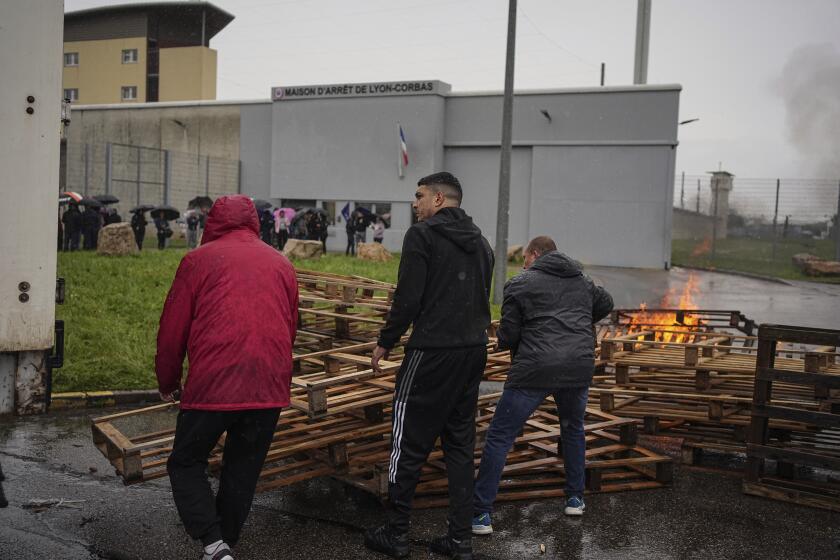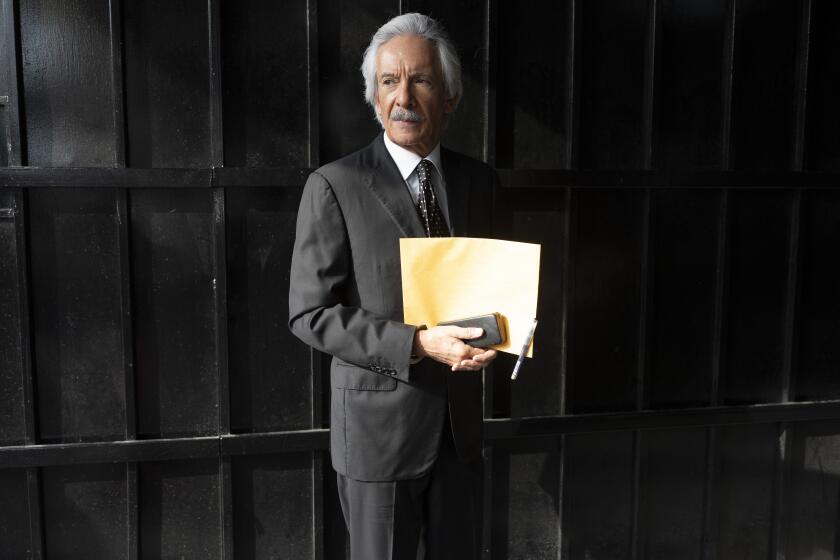Vote in Ivory Coast May Pave Way for Strongman
Voters in this West African nation appeared to have heeded calls for a boycott of Sunday’s presidential election, possibly paving the way for a military junta leader to become their new head of state.
Opponents of the military leader, Gen. Robert Guei, had urged voters to stay away from the polls to protest what they said was the election’s lack of credibility, and preliminary reports from around the country suggested a low turnout. But political observers believe that the move could have handed Guei, who took control during a coup last December, an easy victory.
Early results from Sunday’s vote were expected today. About 5.5 million people were registered to vote out of a population of 16 million. The winner must garner 50% of the ballots to avoid a runoff early next month.
“I did not even register to vote because I already knew it was going to be an unfair election,” said Adama Fofana, a transport worker. “We already know who the president is going to be.”
Most candidates, including those from the country’s two largest political parties, were excluded from the vote by the Supreme Court, leaving four relatively minor opponents to challenge Guei. The 59-year-old career soldier had promised to swiftly relinquish power following his ouster of former Ivorian President Henri Konan Bedie on Dec. 24, but he subsequently changed his mind.
Though many Ivorians say they don’t believe him, Guei has promised to step down if he loses.
Ivory Coast is “a peaceful country, where everything takes place in serenity,” he told reporters while voting at a primary school near his home in an up-market Abidjan neighborhood. “The winner will win.”
Dressed in a light-blue suit and matching tie, and accompanied by his wife and several security officers, Guei expressed confidence that he will win. He has promised to unite the country, help empower women and agricultural workers, and generate more jobs for Ivorians.
“The country is dominated by foreigners,” said university student and Guei supporter Lacine Doumbia. “We need an Ivorian that we all know. [Guei] is an authentic Ivorian.”
But his main rival among the remaining opponents, Laurent Gbagbo, 55, a history professor and veteran opposition leader, has portrayed the poll as a choice between civilian and military rule and predicted he, Gbagbo, will win.
“It’s difficult to imagine that the Ivorians are going to accept a military man who came to power through a coup d’etat,” said Gbagbo, who has promised to improve social services and embark on a program of decentralization, which would give the country’s regions more economic autonomy.
Urging his followers to be on the lookout for vote-rigging, Gbagbo said that if there were evidence of massive fraud his party would appeal to the people to set the record straight.
“It will be like Belgrade,” he said, referring to the popular uprising that forced former Yugoslav President Slobodan Milosevic from power earlier this month.
But the government-owned national television station reported Sunday that scores of Gbagbo supporters had been caught with duplicate voter cards and arrested.
The United Nations, the Organization of African Unity, the European Union and countries including the United States and Canada withdrew election observers or halted funding to protest Guei’s decision to run and the exclusion of major opponents.
So the Ivorians had to rely on their own monitors. A representative from each of the candidates’ parties was allowed to be present at polling stations, where, for the most part, voting went smoothly.
Gbagbo’s supporters said a fair election would give their candidate the victory because Guei lacks a strong power base.
“He doesn’t even have a political party,” said Daniel Galle, a representative of Gbagbo’s Ivorian Popular Front. “Even in the army, he is not in total control.”
Guei’s soldiers have staged two mutinies since the coup, and officials say the military leader survived an assassination attempt in September. The increased hostility has forced him to limit his public appearances.
There were few long lines outside polling stations around this port city. Many of those who showed up said they simply want a leader who can solve the country’s social and economic problems and restore Ivory Coast’s reputation as an island of stability in a tumultuous region.
“I am looking for a president who can manage the economy, education, health care and take care of poverty, which is very much an issue in the country,” said Clementine Degre, 40, a kindergarten teacher who chose to keep her choice of candidate a secret. “Also, women are forgotten. They are not given their right place. I hope the new president will do something about this.”
Veronique Aubin, chief of a polling station in one posh Abidjan suburb, predicted that Ivorians would ultimately accept whomever is declared winner--for the sake of peace.
“No matter what happens, Ivorians will never burn their country,” Aubin said. “No matter who wins, there will be no violence.”
More to Read
Start your day right
Sign up for Essential California for news, features and recommendations from the L.A. Times and beyond in your inbox six days a week.
You may occasionally receive promotional content from the Los Angeles Times.







